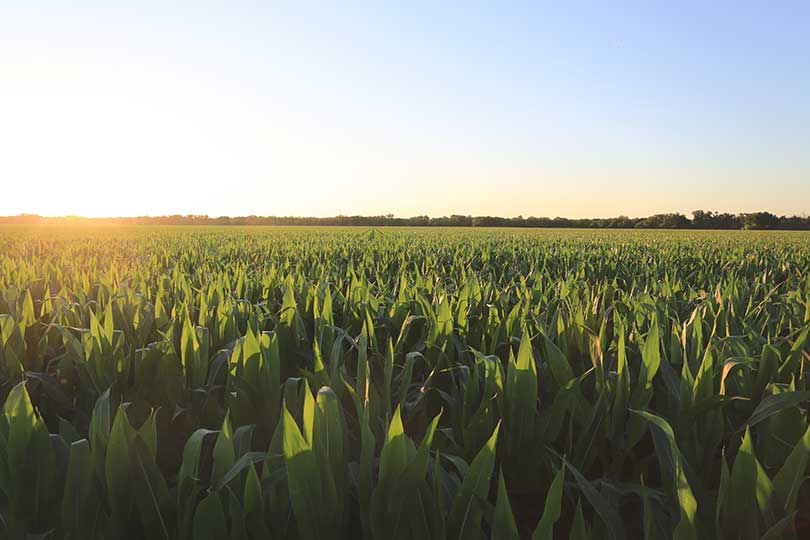Farmers and ranchers have a strong story to tell regarding sustainability and climate-friendly practices, according to Texas Farm Bureau (TFB) President Russell Boening.
“Agriculture is part of the foundation of sustainability,” he said. “We are producing 270 percent more with the same amount of inputs compared to 50 years ago. That’s all tied to innovative practices and efforts farmers and ranchers have implemented.”
According to the Environmental Protection Agency (EPA), U.S. agriculture combined accounts for only 9 percent of U.S. greenhouse gas emissions. Other sectors—including commercial and residential, industry, transportation and electricity—make up the remaining 91 percent of emissions in the U.S.
Texas farmers and ranchers implement sustainable practices in many ways, helping to minimize their impact on the environment.
“Farmers and ranchers have embraced and implemented innovative technologies that reduce emissions and increase efficiency. Agriculture is eager to be part of the solution,” Boening said. “As farmers, we play a leading role in promoting soil health, enhancing wildlife habitat and conserving water and natural resources as we grow our crops and raise livestock.”
Boening noted farmers are leading the way by reducing their relatively small footprint through management practices that sequester carbon dioxide, such as no-till farming, planting cover crops and other practices that trap excess carbon.
It’s important, Boening said, for farmers and ranchers to be part of the sustainability conversation.
“We care for the land, livestock and wildlife. We care about our natural resources, and we want to pass our farms and ranches on to the next generation,” he said. “To keep modern agriculture sustainable, we have to make a living. But when growing food gets political, it gets tough. We need to continue unleashing innovations through agricultural research, while also making sure policy isn’t enacted that would harm agriculture.”
Texas farmers and ranchers work to be environmentally and economically sustainable. Agricultural research and voluntary stewardship investments and practices, some of which are outlined in the farm bill, have helped farmers strengthen their stewardship efforts.
To share and promote agriculture’s sustainable practices, the American Farm Bureau Federation, along with other agricultural organizations, created a coalition—Farmers for a Sustainable Future. The coalition aims to provide a voice for farmers and ranchers in the discussion about climate-smart farming and climate policy.

